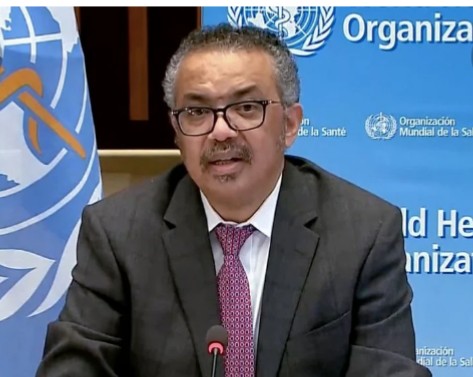|
Getting your Trinity Audio player ready...
|
The OPTIMMUNIZE 2022 conference in Denmark gave researchers a chance to present groundbreaking findings that would save newborns.
Before the meeting, WHO Director-General Dr. Tedros Ghebreyesus opened the conference and spoke about how the infant mortality rate has more than halved globally since 1990 but newborn mortality has not kept pace. In 2020, 2.4 million children died in the first month of life – almost half of all child deaths.
“It’s also clear that we will need new and better vaccines for diseases against which there are none, or that offer limited protection,” said Dr. Ghebreyesus. “But we also need to examine how we can use the tried and tested tools we have in new ways, including for their ‘off target’ effects.”
“Off-target” effects, also known as non-specific effects of vaccines is when a vaccine has an impact on health outcomes beyond the disease it was designed to tackle. Dr. Christine Stabell Benn, professor of global health and chair at the Danish Institute for Advanced Study, says this area of research has matured tremendously over the last decade.
“We are now at the point in time that some of these findings should influence global vaccination policies,” said Dr. Benn. “It was encouraging that Dr. Ghebreyesus endorsed the research into non-specific effects of vaccines.”
At the conference, the OPTIMMUNIZE group delivered compelling documentation showing that vaccines have these non-specific effects, for example, by demonstrating that children who receive the BCG vaccine against tuberculosis at birth have a lower mortality rate from unrelated respiratory infections, as a result reducing the high neonatal mortality if BCG is given at birth.
“A clear recommendation from WHO that this vaccine be given within the first week of life because it improves a child’s chances of surviving the first vulnerable month of life, would be of paramount importance,” said Dr. Benn.
OPTIMMUNIZE 2022 was held November 9-11 at the Danish Institute for Advanced Study. It brought together researchers and policymakers from all over the globe to discuss what is known as the non-specific effects of vaccines. This is when a vaccine has an impact on health outcomes beyond the disease it was designed to tackle.
Interestingly, during the pandemic, researchers observed that three of the common childhood vaccines reduced the severity of COVID-19 infection in vulnerable populations. These include the BCG vaccine, the measles, mumps, and rubella vaccine, and the oral polio vaccine. The studies reported that they were found to reduce the risk of severe COVID-19 symptoms and the need for COVID-19 treatment and furthermore, they were associated with reductions in all-cause mortality. This was because of their non-specific effects.
Background
OPTIMMUNIZE 2022 was supported by among others AJ Vaccines and the Parsemus Foundation, a nonprofit that is working to create meaningful improvements in health and welfare by advancing innovative and neglected medical research. The first OPTIMMUNIZE conference took place in 2020 at the Wellcome Trust campus in Cambridge, UK, before the pandemic hit. It inspired many of the participants to initiate randomized trials on the non-specific effects of vaccines, the results of which are currently ongoing.






